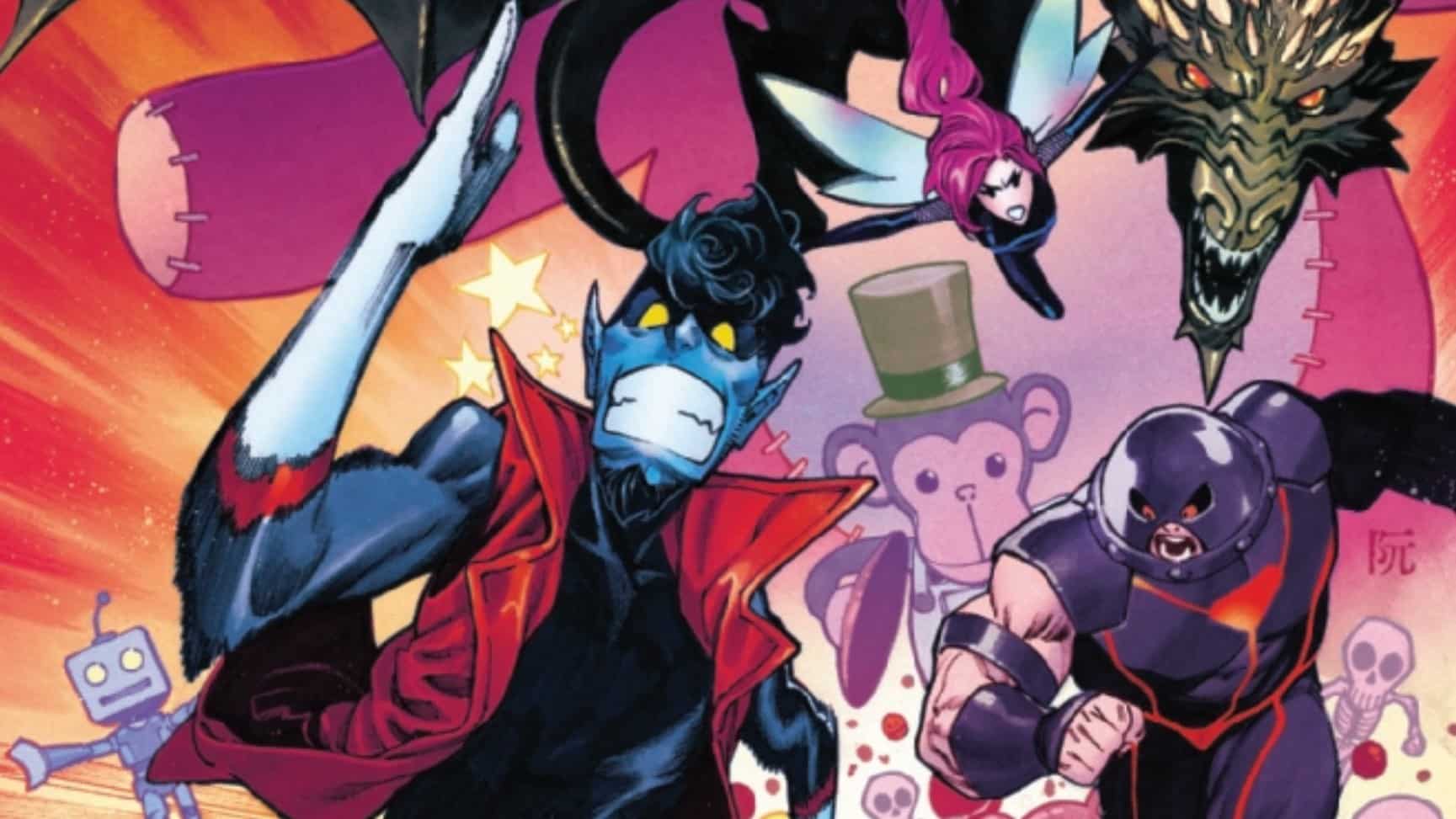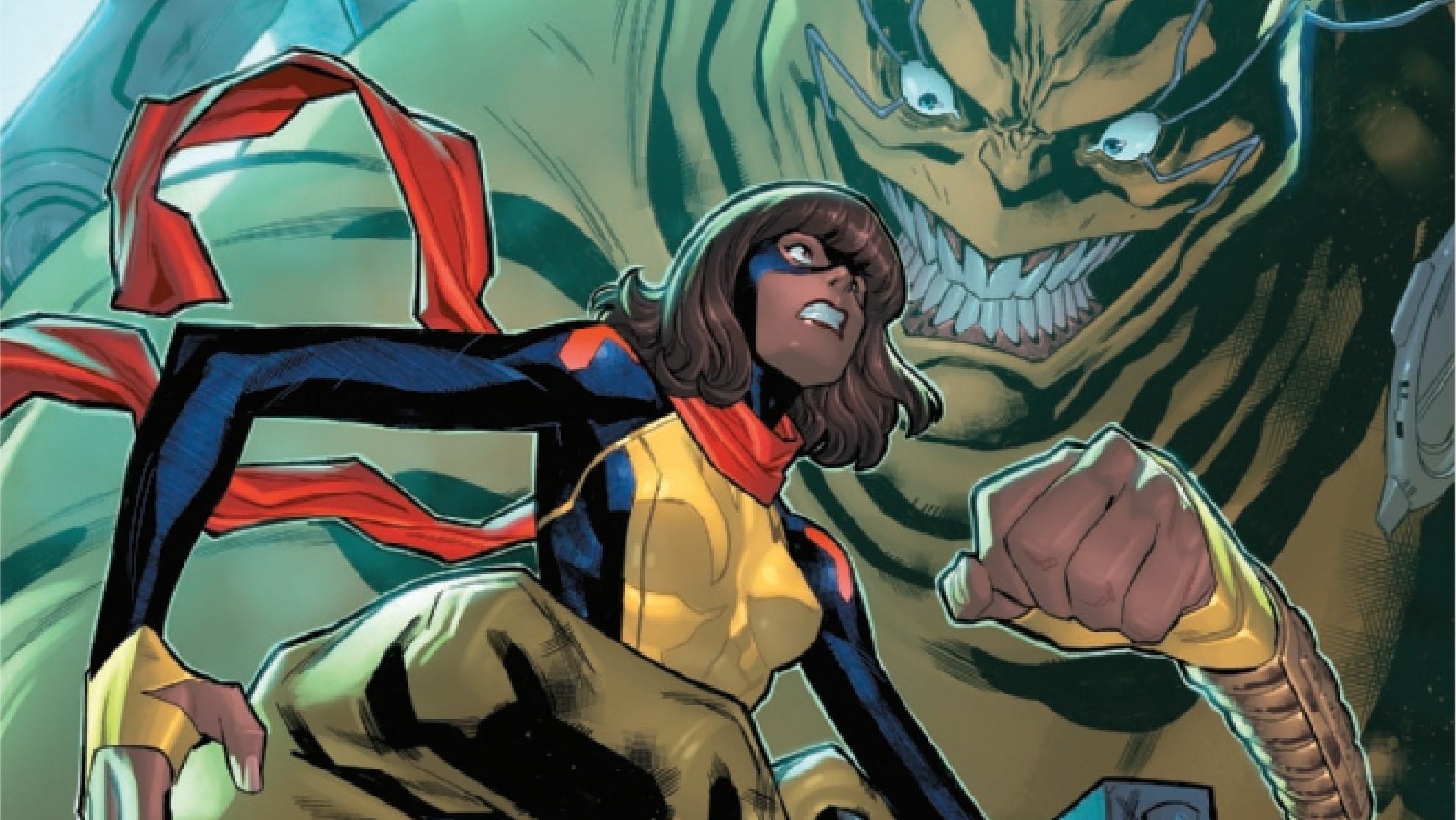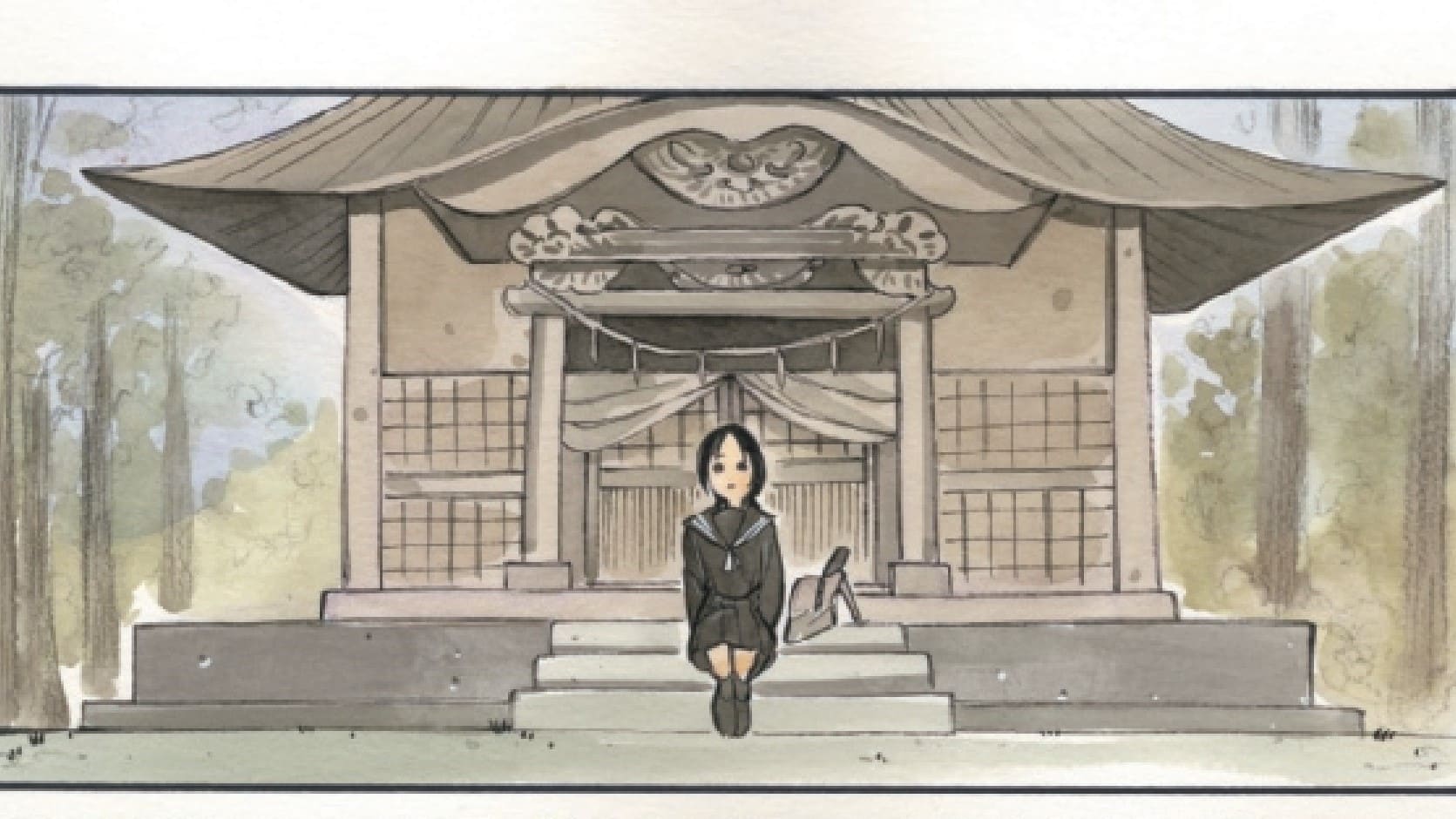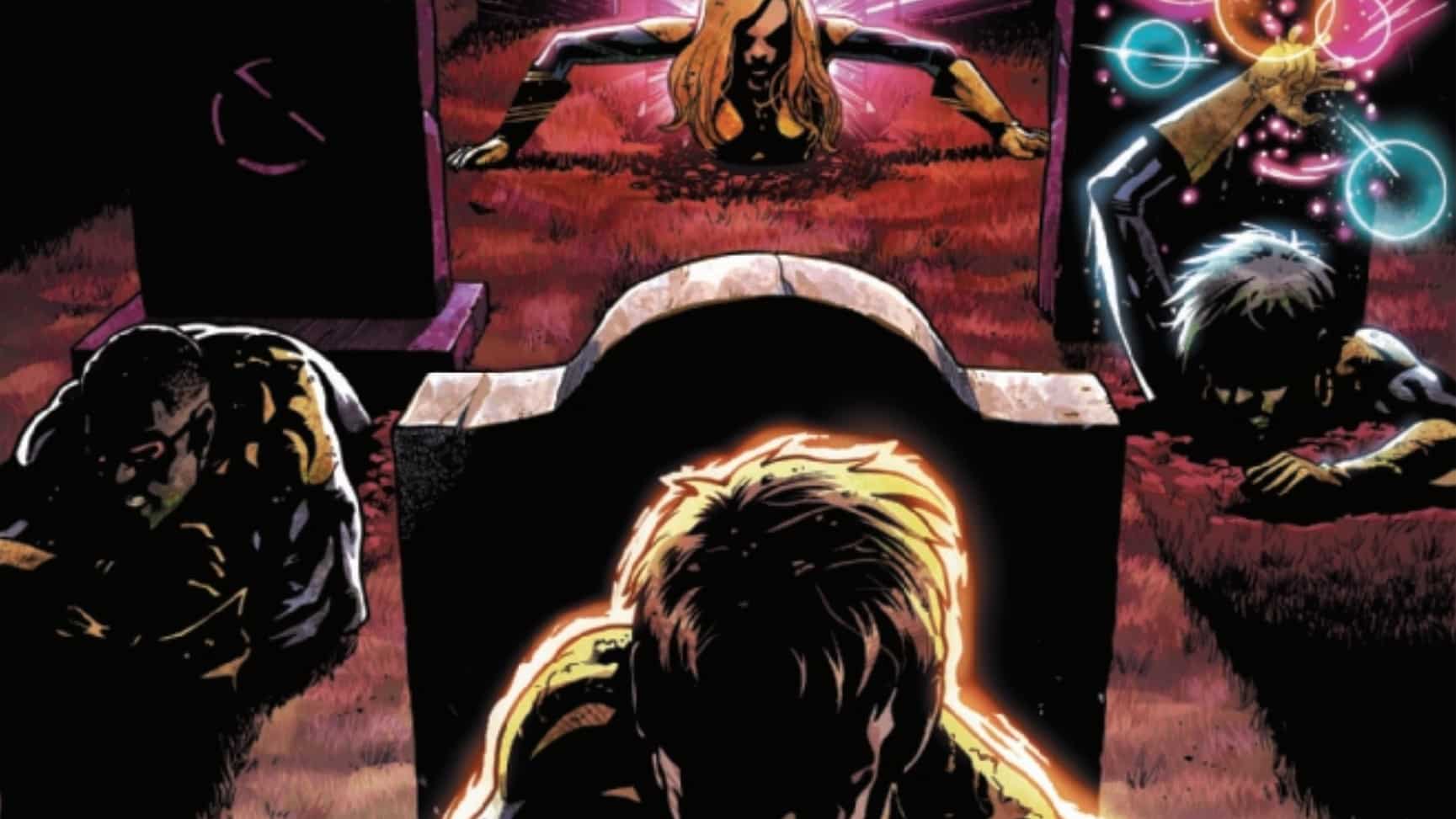There are demons in all of us — but if you’re a resident of Krakoa, that can often be a very literal problem. As Pixie traps the body-hopping Skinjacker and tracks down his body, Nightcrawler and Zsen head through the Astral Plane to find a lost god, only for both cases to collide in Legion of X #4, written by Si Spurrier, drawn by Jan Bazaldua, colored by Federico Blee, lettered by Clayton Cowles and designed by Tom Muller with Jay Bowen.
Armaan Babu: You know, I’ll give a #1 the benefit of the doubt, I’ll even extend it to #2. We’re at #3 of Legion of X, though, and I feel pretty comfortable saying this: Legion of X is a mess. Trust for a comic that spends about half its time in the Astral Plane to feel ungrounded, but we’re getting a lot of ideas thrown at us with very little of it landing. This issue, in particular, looks a lot like what happens when I’m freewriting a bunch of ideas, no pauses, no edits. What I end up with is a bunch of really interesting ideas that I’d like to explore, but nothing that approaches satisfying storytelling.
What do you think, Ari?
Ari Bard: This was a huge mess, and it’s probably best summed up by the opening recap page poorly describing five different subplots. The Astral Plane is now clearly rendered in my head thanks to a pair of data pages, but does it matter if it’s made significantly more boring? There’s very little connection across pages or even panels both from a narrative standpoint and a visual one.
Armaan: Disentangling the various plot threads is going to be tricky, but hey, that’s what we do. Let’s dive in.
Juggernaut Loses Momentum

Armaan: There’s a lot of Astral Plane stuff that happens in this issue, but before we get to that, I want to take a look at the stuff that’s slightly less astrally related; mainly, the Juggernaut stuff, and the progression of the Skinjacker investigation.
There aren’t a lot of non-mutants living on Krakoa. In fact, as far as I can recall, the only three we know of are Northstar’s husband Kyle, Warlock (no X-gene, though he is a mutant of the Technarchy), and, of course, Cain Marko, the Juggernaut. He’s still rattled by Skinjacker having possessed him last issue, and the emptiness it left inside of him.
He’s feeling lost, in a way that David Haller can’t help but notice. I can’t believe it hadn’t occurred to me up until now, but Cain is technically David’s uncle — and as far as I know, they haven’t really interacted much with each other in the long history of the X-books. So the two take a little walk through the Altar as Cain spills all.
We were talking in the CXF Slack earlier about, among other things, mischaracterization, and something our esteemed editor Zack was saying stuck with me. He spoke of Spurrier’s writing as a note that’s off-key. He was talking about Nightcrawler (who we’ll get to in a bit), but I feel the same about Juggernaut. Under Spurrier’s pen, he’s got a voice of self-effacing insecurity. That’s not exactly out of character for me … but it feels off-tune. Is it just me?
Ari: I get what you mean, but I don’t think I mind some of the insecurity that Juggernaut is feeling here simply because his purpose and identity are both kind of nebulous in the Krakoa era given his general relationship with mutants and mutantdom. What makes Juggernaut feel off to me is how they’re choosing to address this uncertainty, which is by having Cain sort of bumble around Krakoa lost, unsure of what to do, and now feeling violated after the Skinjacker incident. All of these are understandable, but I’ve never viewed Cain as someone who is so indecisive and anxiety-ridden that he’d just wander aimlessly. It’d feel a lot more in-character, to me at least, if he had picked the Legionnaires on impulse, and stuck around, for better or worse, whether anybody liked it or not. In my experience, Cain’s always been someone who will find a solution to his problem, even if it’s just running head-on at whatever’s in front of him.
Armaan: OK, you just put it across a lot better than I did. This doesn’t feel like the Cain I’ve come to know and love. Either way, though, it’s safe to say that he’s lost a bit of his momentum.
As he opens up to David, it’s mentioned that Professor X offered to remove the memory of the hollow feelings the Skinjacker left behind — if Cain promised to quit the Legion team. This is especially jerk-some of Xavier: to withhold an offer of help until Cain agrees to keep his head low. Remember, Xavier didn’t want Cain on the island in the first place.
It’s also something that shouldn’t be lightly offered. Pain, trauma, even flaws, they make people who they are. David describes Professor X as the type of person who would snip away anything inconvenient about a person — which is certainly in keeping with everything we know of Xavier — but David argues that a more lasting solution is to let people wrestle with their own demons. It’s a solution that’s hard to monitor, and even harder to control, but honestly, the less control the Quiet Council has at this point, the more comfortable I’d feel.
Krakoa’s First Great Test

Another person who refused to let his memories be wiped is the alleged wife-killer, Paulie DiCosta. Someone who was brought in by the Legioncops under the “Kill No Man” rule. However, instead of throwing him in the pit, we find out his responsibility for his wife’s death is a matter of some debate: He didn’t murder her, but stayed by her side, despite knowing that his mutation (somehow) worsened her growing tumor.
Ari: Yeah, I have no real idea about what the narrative point of Paulie DiCosta is after this storytelling decision. The impetus for the subplot is that he murdered a mutant, but it feels like they could have done a routine telepathic scan and realized that wasn’t the case a lot sooner than this. If Paulie didn’t actually murder his wife, have the Legionnaires really done him more healing than harm when all is said and done? It seems like Paulie is getting some of the healing he needs, but things also seemed to get needlessly worse before they got better due to interrogations, questioning and deliberations that weren’t necessary.
And that’s largely what’s wrong with Legion of X. The processes, practices and beliefs — such as the healing process, the investigation process, how Legionnaires handle certain types of situations, and their reason for being — that should be codified into a foundation of purpose that cements what and why the Legionnaires exist are left uncertain as a way to keep characters scrambling. Meanwhile, the more abstract concepts such as the Astral plane, the Altar, the Soul Dagger and swapping bodies are all grounded and explicitly defined in an attempt to make things feel more tangible when the reason for existing that would anchor them is left up in the air. If the Legionnaires’ purpose grew out of the idea that it’s too easy to remove harmful memories when that makes up a part of who we are, a simple mission but an important one, then how they went about enforcing, investigating and practicing that mission would automatically become clearer.
Armaan: I want to like this series a lot more than I’ve been able to — and it annoys me that the best issue of Legion of X so far is, in fact, Sabretooth #4. One panel in particular has summed up what this should be better than both Legion of X and Way of X combined:
Sabretooth is, of course, talking about the moment when the Quiet Council unanimously voted to throw him into the Pit for breaking the First Law: Murder No Man. As Sabretooth points out, it was Krakoa’s first failed test. The dilemma of how to deal with someone like Sabretooth is what we should be looking at. Instead, we get soft cases like DiCosta’s, where the “He killed his wife!” accusation is quickly walked back.
Don’t get me wrong, I am not sure how much DiCosta is in the clear. It’s a complicated case. From the sound of it, he was definitely horrible to his wife, and her death could have been prevented, but we were kind of bait-and-switched in regards to the severity of his crime.
Which makes me wonder about how bad Skinjacker is going to turn out to be, but speaking of the Skinjacker investigation … how this is playing out is seriously frustrating me.
If you’ll recall, Ari, last issue brought me some confusion. I thought the Skinjacker and the runaway god were in fact the same person, and that that person was Loki. You had to point out to me that they were, in fact, different people, different cases. I felt like an idiot. I had pieced together the wrong clues, clues that seemed obvious to me.
As we find out this issue, though, the cases are the same. Pixie traps the Skinjacker’s spirit in a decoy Doctor Strange husk, and in searching for Skinjacker’s body, comes across a giant shadow figure that looks a lot like Loki’s silhouette but doesn’t get a name. We discover that the Skinjacker has been granted magical powers by this unnamed god after a ritual sacrifice of some kind.
Ari, can you think of any reason why they don’t just say Loki at this point? Why are we being hammered with “clues” about the God of Mischief, Norse runes, a Loki silhouette, an upcoming cover with Loki on the front, but nobody seems able to bring him up? Either Loki is a part of this comic and is being set up to be an embarrassingly obvious reveal, or this is an awkwardly set up and incredibly unsatisfying mislead.
That both cases were connected seemed pointedly obvious from #1, but the comic frames this revelation as some kind of big “reveal,” which is confusing the hell out of me. Why is this story being set up this way? If this is meant to be a mystery, the way it’s unfolding is — and I hate having to use this word again, but there’s really no other — a mess.
I’m OK with mess. X-Club (which Si Spurrier also wrote) was a mess, and it was great. Legion of X seems to be trying for something more, though, but its foundations are so shaky it all keeps falling apart.
Ari: Armaan, I admire your passion for this mystery and frustration with Spurrier beating around the bush, but I’ll be brutally honest here and say that I am not sure it matters to me whether it is Loki or not because, in my opinion, Loki being the runaway god and the mysterious individual giving Switch his powers does nothing for the story.
In the end, the problem here is the same as the problem with why the characterizations feel slightly off, which is the same problem as to why the definition of the Astral Plane and the journey through it feel so empty: Legion of X has no idea what it wants to be. It skirts around some interesting topics, for sure. There’s the idea of painful memories and trauma being a part of who we are, the potential of switching bodies and explorations in mingling with minds other than one’s own, and the search for a purpose, but Legion of X is ultimately more interested in being coy and teasing why the book exists than justifying itself outright and letting the intriguing consequences play out.
Krakoa was filled with people who once, and for a long time, considered their primary identity to be “mutant as they lived in a world where most were not and where many did not accept them,” but when (almost) everyone around you is a mutant, is that still everyone’s primary identity? If so, how does that identity change when everyone shares it? If not, how does everyone go about finding out what their identity is in a society that doesn’t give you a purpose? These are questions that Legion of X could explore but chooses not to in favor of teasing the appearance of an established god as a way of uprooting the Arakkii status quo for a bit.
Swashbucklers Adrift in the Astral Sea

Armaan: This seems like the most Astral-heavy issue we’ve gotten so far, which fits in well with the data pages we get. There’s a fascination with just what David’s created by literally opening a Krakoan gate into his mind. However, two very wordy data pages don’t seem to give us a lot more than this: The Altar is smack in the middle of the physical plane and the Astral one. Laws of physics still hold, but are iffy. Mind shapes reality. In short, it’s a place where non-psychics get to do the kind of stuff they ordinarily wouldn’t.
There are maps that, in essence, show us where physical reality is weaker than usual — the middle spaces, like the beach, the mindspace of the congregation. It just feels to me like none of these places are all that different from each other. If someone’s nightmares start attacking them, I don’t think it makes a difference if it happens on the beach, by the temple gates or at the heart of the Altar. It feels like a lot of thought has gone into making this map … but so far, I’m not seeing what it has to do with any of the several plotlines that are already being told.
Ari: I think you’ve put it pretty well. It’s sort of like the Altar is a house sitting on the border between two countries. If I leave out the back entrance versus the front entrance, the rules where I step outside could be vastly different, but ultimately, the individual rooms of the house are going to be pretty similar while serving different functions. The Beach appears to be a manifested border between the relatively grounded area of the Altar and the Astral Plane as a whole where people can sort of venture into the surreal at their own risk. I’d imagine it’s supposed to be a guided ordeal to facilitate individual healing. The Qortex Complex is a personality archive. The Congregation is a sort of group therapy hive mind geared toward collective healing. They all have different purposes, but at the end of the day, if a murderer is attacking me in my bedroom and I go to the kitchen, it’s not going to matter too much.
Armaan: I think the one place that has potential to be truly distinct is the Qortex Complex. Ever since his return, we haven’t seen a single one of Legion’s other personalities. Apparently they’re all locked up. That’s a ticking time bomb if I ever saw one, and I have to wonder — if people can physically walk into Legion’s head … could one of his escaped personalities use the Krakoan gates to walk out? I mean, that story’s been done before, but now it’s easier than ever.
Nightcrawler and Zsen aren’t messing about with the subsections of the Altar, though — to track down the missing god, they’re diving headfirst into the Astral Plane proper.
Ari: It’s funny that you outlined this section as the guided Astral Plane trip because it doesn’t feel guided at all. Blindfold is supposed to be a guide, but she’s barely keeping Nightcrawler and Zsen tethered, let alone the reader, and there is very little indication that she’s in control here. They’re floating through this nebulous space reminiscent of the Interdimensional Bleed for any DC fans out there, but there’s a reason why heroes are seldom left in the Bleed for very long and why it only represents a space between spaces, so to speak. Visually, a plane this abstract is hard to depict in an interesting but clear way for long periods of time, and Legion of X #3 decides to forgo clarity to keep Zsen and Nightcrawler here.
Narratively, Nightcrawler and Zsen’s discussion largely amounts to the idea that one person’s nightmare is another’s paradise, which is a hell of a way to spend 60% of an issue before running into Ghost Rider Banshee. Visually, panels and balloons give very little indication as to how the reader’s eyes should flow across the page. There’s almost no connection between scenes or visions that Zsen and Nightcrawler are viewing. It’s a complete mess.
Armaan: There’s a softness to the art, which adds to the chaos — everything looks like a vague reconstruction of clearer visuals. Even the colors for the Astral parts — while undeniably gorgeous — have a paleness to them that makes everything feel like a dream. I mean, clearly, that’s the intent, but when a series has as many plotlines and abstract sci-fi (Si-fi?) concepts as this one does, it would help if the comic didn’t feel like a secondhand recounting of a half-remembered dream.
Let’s talk about Zsen for a bit. She’s growing a certain fascination for Krakoan society — which, at this stage of Krakoa’s development, isn’t all that different from human society as a whole, especially in comparison to how differently things work on Arakko. On Arakko, people worshiping gods is behavior that’s so against the norm that it’s easy to root out a god’s new followers. Zsen implies, though, that the mindsets of the Krakoans are so unique and varied that it’s hard for her to figure out what a baseline norm even is — and the way she describes it, you wouldn’t be blamed for thinking she’s a little enchanted by all these new ways of thought. Nightcrawler, and his Way — to find new ways of doing things — probably embody the things she’s being enchanted by most strongly. It’s a classic odd-couple romance. The war addict and the man struggling to keep the peace.
It’s a story I’d like to invest in, but the way the story is being told, I’m snatching it up from between panels and in brief moments that barely get a moment to breathe.
Ari: I wholeheartedly agree. Zsen carries the perspective of someone who has only known war. It is a perspective we’ve seen before and one that holds weight when comparing Arakko and Krakoa. As strange as it is to imagine the Arakkii as being of one mind, the fact that the history of Arakko is filled with significantly more war is important. War is limiting in many other areas including school of thought. During wartime, few also have the time to be philosophers or to innovate. Obviously Krakoans have never been without struggle, but war has never been something that every mutant embraced, and innovation and different modes of thinking were found in escape. It’s an interesting divergence largely muddled by the journey through the Astral Plane.
Armaan: On the other hand, we have Nightcrawler, who is caught between his faith and his need for progress. He’s struggling to find balance between these two opposing ideals, and his doubts are eating him alive — quite literally, on the Astral Plane. It’s been said before, but I’ll say it again: I don’t enjoy how hard Spurrier is leaning into Nightcrawler as being so traditionally Catholic. For feeling guilty for his, as the book puts it, “licentiousness.” It’s another thing that feels off-tune to me … though I will admit, his Astral crystal-pope outfit looks fantastic. Still, if this is the story we’re getting, I want to see it, too, get its place in the sun.
One plot, however, keeps interrupting another. We have a fever dream of strange stories all crashing into each other, only loosely bound by a some semblance of a common theme, and barely any time to have fun with any of it.
I wish this book would slow down, Ari. Slow down, resolve some plot lines and not add any new big ones until the important tales have had the time in the spotlight that they deserve.
Altared Records
- Drunk Magneto doing excellent Gandalf impressions (both characters were portrayed by Sir Ian McKellan) is a great gag, but it’s also deeply heartwarming to know that Magneto has room in his heart for silliness.
- Apparently, there are groups of Arakkii people just leaving Mars to see what other conflicts they can find in the galaxy. Insta-villains for your Guardians of the Galaxy, your Novas and whatnot.
- The Legionnaires seem to be introducing some kind of “belonging” therapy for people they bring in, and it is difficult to figure out how I feel about that.







